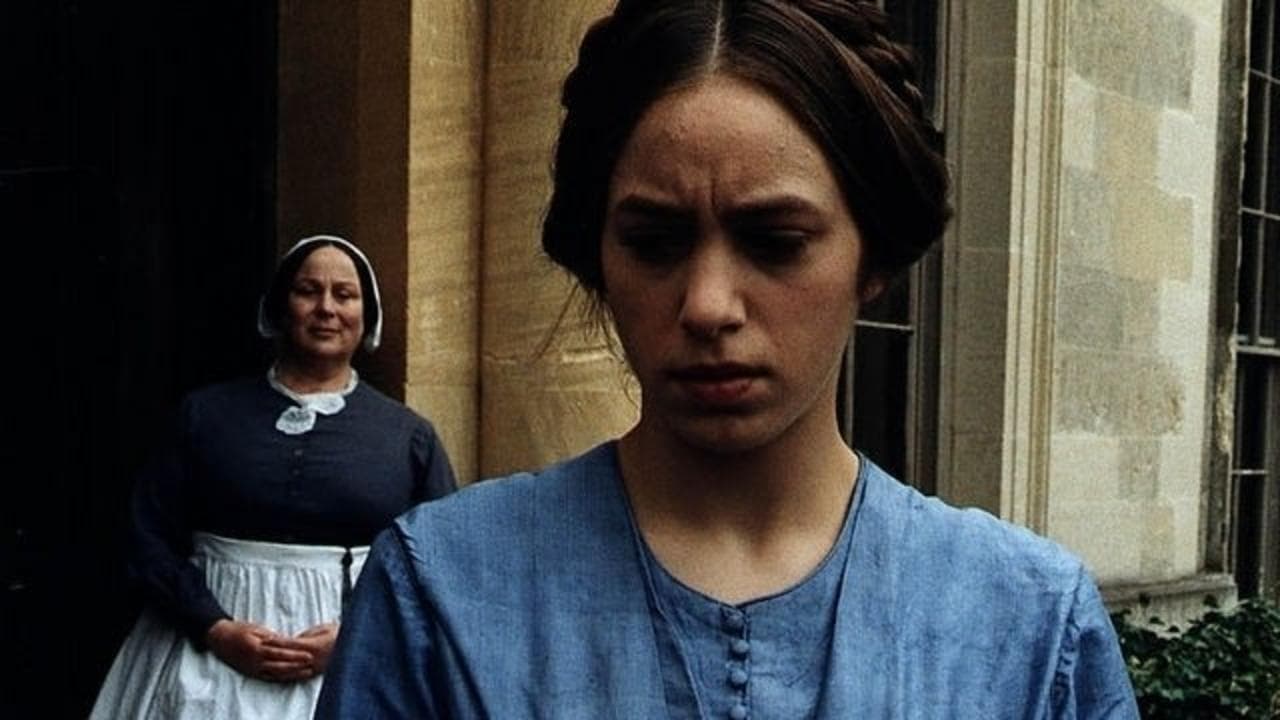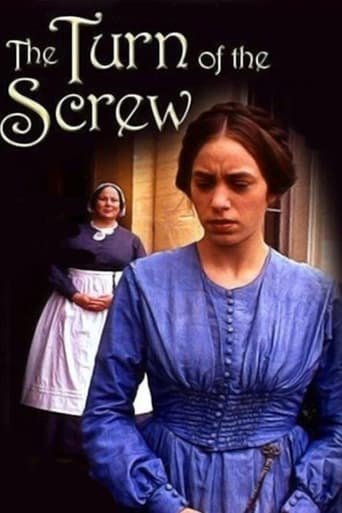

It is a performances centric movie
... View MoreAn absolute waste of money
... View MoreAbsolutely Fantastic
... View MoreThe film never slows down or bores, plunging from one harrowing sequence to the next.
... View MoreI have recently seen several versions of this tale by Henry James. And, being a glutton for punishment, I thought I'd see a few others so I can compare them (such as "The Innocents" and the 1974 and 1992 versions which bear the original story's title). Now I am NOT saying it's a bad story--it's quite good--but most folks don't want to see and compare the stories like this. I am doing it as a public service and because I am a solid humanitarian (well, maybe not).A governess is hired by an odd man to care for his orphaned nephew and nice. However, he has a bizarre demand--that she never contact him or expect him to have any involvement with the kids! Nice, huh? Well, she travels to one of his homes where the niece lives. The governess is surprised to see that the home is huge and quite gorgeous--and the child a sweet little thing. Life seems ideal at this home.A bit later, the nephew is sent home from his boarding school and the governess is informed he cannot return--but they never disclose in any way why. It's odd, as the boy seems exceptionally well behaved and bright. And, for some time life is swell. However, occasionally, the governess sees people--people no one else seems to see. While you'd assume she's either crazy or overreacting, her descriptions of the two figures are consistent with two members of the staff who are now dead! She assumes she's seeing ghosts--and she assumes the ghost mean to do the children harm. How she comes up with this is unknown--and opens the story up to some interpretation. In this 1999 version, the filmmakers seem to STRONGLY imply that the governess is probably insane and/or suffering from religious delusions. She might seem in this version to be suffering from paranoid schizophrenia or is just very uptight and impressionable--but you aren't sure. This is interesting because in most of the other versions I've seen make it seem as if there really are ghosts and the governess isn't necessarily insane. Either interpretation is possible--as in James' novel this wasn't explicit. And, in the end, what happens to the boy is NOT exactly what happens in other versions. Again, because they seem to be implying the governess is a few fries short of a Happy Meal.This made for TV version has very nice location shooting and music. However, if you are looking to get your fill of Colin Firth (for all you Firth-a-holics), you will be sadly mistaken, as he's ONLY in the opening scene and no more. And, I appreciate it emphasizing an atypical interpretation of the tale, as MANY stories have been done about it--and it's nice to see something a bit different. Well worth seeing--particularly if you are looking for a psychological picture as opposed to a supernatural story.
... View MoreThe 1961 Deborah Kerr vehicle, "The Innocents" went for thesupernatural chills and is likely the best adaptation ever (at leastit's likely the most popular), but this straight-forward rendition ofHenry James' best known short novel is probably the closest to theauthor's intentions to date. By sticking with psychological terrorrather than creepy SFX, this production succeeds in portraying ayoung woman's descent into madness that too often takes abackseat to the realm of ghost story in lesser productions. JodhiMay's wide-eyed performance is nothing short of brilliant. PamFerris and Colin Firth round out the strong supporting cast(although Mr. Firth is seen only in the first five minutes of film andnothing more, so you Pride & Prejudice fans beware!).
... View MoreThis is a solid adaptation of a novella often used in highschools and colleges. Like James's book, this version uses point of view masterfully.A note for teachers: This adaptation is an excellent way to teach interpretation, especially when it is compared to the 1961 Jack Clayton production "The Innocents."
... View MoreThis was an interesting adaptation of James' equivocal little masterpiece. This production leaned a bit towards the Freudian camp/interpretation.I liked it. They took a bit of liberty on some of the Jamesian dialogue e.g. Flora's speech to the governess by the lake. Not as many liberties, though, as in "Wings of the Dove"Note for the pedantic: One surprising bit was the first apparition of Quint; he appears in the afternoon in broad daylight. Devotees of the James' piece and the ghost story frisson will surely remember that this occurred in twilight.
... View More